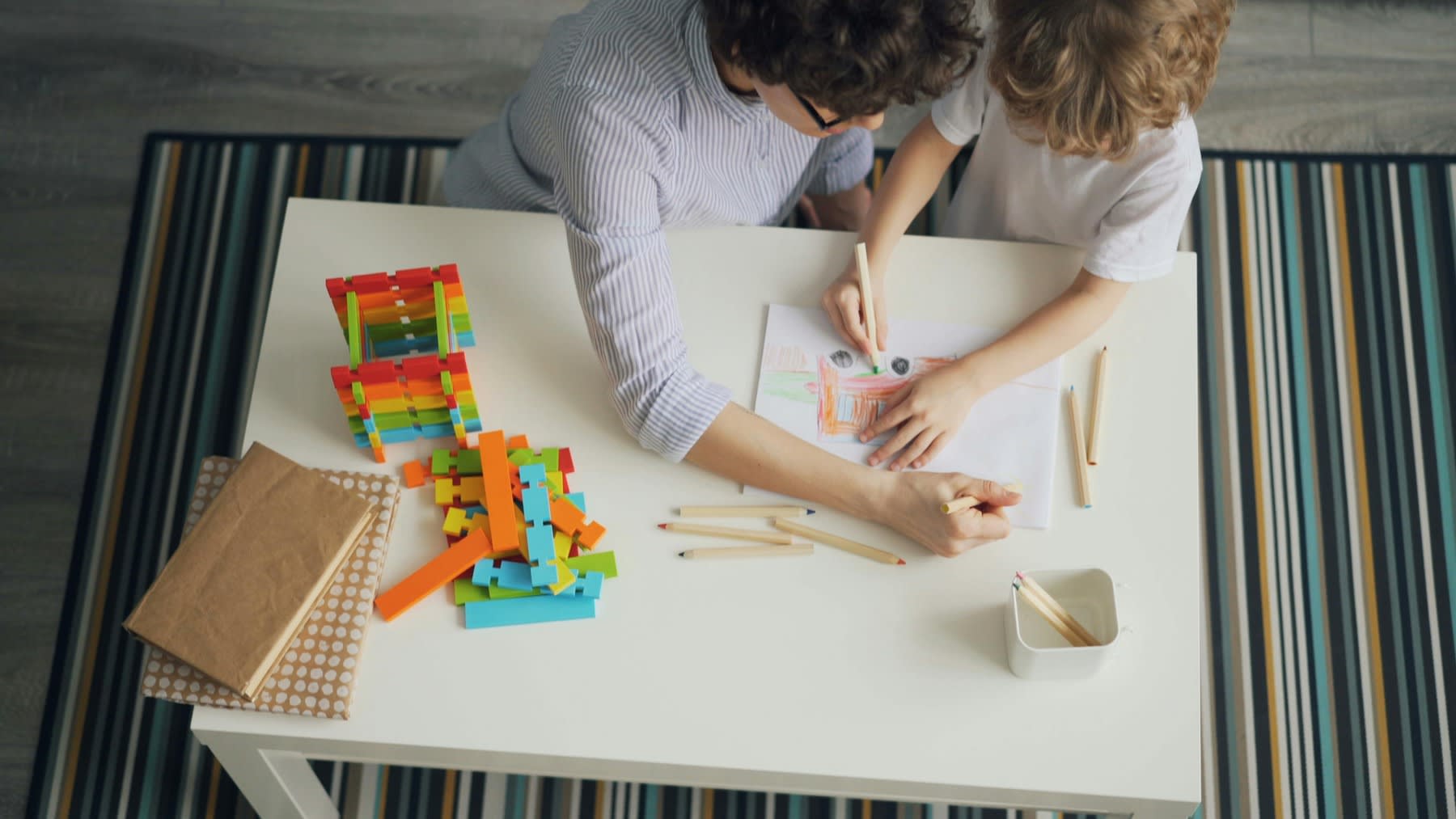How to Become an Educational Psychologist

Key Takeaways
- Educational psychology is a dynamic field that combines the science of psychology with educational practice.
- Your primary roles as an educational psychologist include assessment, intervention, and research.
- Internships during your undergraduate studies provide invaluable real-world experience
Knowing what to expect can give you a big help if you’re considering being an educational psychologist. During our journeys, we mostly had to learn along the way, and now we’re putting everything we know in one place to help you. Here’s how to become educational psychologists.

How to Become an Educational Psychologist
Educational psychology is a dynamic field that combines the science of psychology with educational practice. Seeing how your understanding of human development and cognitive psychology can directly enhance learning experiences is fascinating.
The Role of an Educational Psychologist
As an educational psychologist, your focus is on observing, analyzing, and fostering the learning processes. Your primary role involves:
- Assessment: Diagnosing learning difficulties and giftedness.
- Intervention: Implementing strategies to improve educational outcomes.
- Research: Studying teaching methods, learning styles, and educational materials to optimize the learning environment.
You’ll often collaborate with teachers, parents, and administrators to create supportive educational settings.
Cognitive Development and Learning
Cognitive development is central to educational psychology because it influences how you understand a student’s learning journey. Key concepts include:
- Information Processing: How students perceive, think, and remember information.
- Stages of Development: Recognizing that learning abilities change as students grow.
- Problem-Solving Skills: Teaching strategies that enhance critical thinking and adaptability.
Understanding these areas enables you to tailor educational experiences that respect individual learning needs and foster intellectual growth.
Back to TopBecoming an Educational Psychologist
Embarking on a career as an educational psychologist entails a structured educational path coupled with hands-on experience to understand and support the cognitive development of children and adults. Here’s a step-by-step guide on how to go about it.
Study for a Bachelor’s in Psychology
Embarking on the journey to become an educational psychologist begins with obtaining your bachelor’s degree in psychology. During this foundational four-year program, you’ll explore various facets of psychology, laying the groundwork for your future specialization.
Core Curriculum:
- Developmental Psychology: Understand growth and behavior across the lifespan.
- Statistics: Learn to analyze and interpret psychological data.
- Cognitive Psychology: Examine mental processes like memory and problem-solving.
- Foundations of Psychology: Know the discipline’s history and key theories.
- Abnormal Psychology: Study behaviors that diverge from the norm.
As you progress, emphasize courses relevant to educational psychology, such as learning theories and child development. These will be integral to your deeper studies and eventual practice.
Consider Undergraduate Interning
As you become an educational psychologist, it’s vital to recognize that classroom learning is just one part of your educational journey. Internships during your undergraduate studies provide invaluable real-world experience, enhancing the knowledge you gain from your psychology coursework.
Here’s why interning matters:
- Exposure: Internships allow you to see firsthand the different environments where educational psychologists operate, such as schools, clinics, and research facilities.
- Practical Experience: You’ll have the chance to observe professional educational psychologists at work and understand the complexities of their day-to-day responsibilities.
- Networking: These opportunities connect you with professionals in the field, which can benefit future job prospects or mentorship.
- Skill Development: Applying theoretical knowledge in practical settings helps you develop critical skills like interpersonal communication and detailed observation.
Here’s how to find internships:
- University Resources: Explore your university’s career services, which often have listings and partnerships with organizations looking for interns.
- Professional Conferences: Attend psychology conferences and workshops to meet potential internship providers and learn about emerging opportunities.
- Direct Outreach: Identify clinics and educational institutions you are interested in and contact them directly to inquire about internship possibilities.

Earn a Master’s Degree in Educational Psychology
After obtaining your bachelor’s degree in psychology, the next pivotal step in becoming an educational psychologist is to pursue your master’s degree. This typically requires two years of study and immerses you in specialized knowledge critical for your future role.
Throughout your master’s program, you’ll encounter an array of courses tailored to expand your understanding of human learning and behavior. Expect to cover:
- Cognitive Psychology: Understand the workings of the mind and how individuals think, learn, and remember.
- Child Development: Learn how children grow psychologically and how this impacts their learning.
- Behavior Analysis: Study how behavior can be assessed and modified within educational settings.
- Psychological Assessment: Get to grips with evaluating and diagnosing learning needs.
Before applying to a master’s program, ensure the institution is accredited. Excellence in past academic performance, particularly a solid undergraduate GPA, can bolster your application.
Complete a Doctorate in Educational Psychology
Pursuing a doctorate in educational psychology is an ambitious step that could significantly enhance your career prospects. Achieving this advanced degree typically involves an additional 3-5 years of study after obtaining a master’s degree, during which you will conduct research, theory, and practical application.
Here’s why you should consider a doctorate:
- Career Advancement: A doctorate can open doors to senior roles, like leadership positions in educational settings or opportunities to teach at a university level.
- Research Opportunities: This degree allows you to conduct in-depth research, contributing new insights and methodologies to the field.
- Licensure Benefits: A doctoral degree is necessary in many states to diagnose learning disabilities and offer certain care levels.
Here are some pathways to a doctorate:
- Research Doctorates (Ph.D.): Focuses on generating new research in the field.
- Professional Doctorates (Ed.D, Psy.D.): These degrees emphasize applying research to practice.
Complete the Required Years of Internship Experience
Internships are an important step in gaining practical experience. During or after your master’s program and possibly throughout your doctorate studies, internship experience is mandatory for licensure as an educational psychologist. They can span one or two years, with about 1,200 hours of experience being acquired.
The goal of an internship is to acquire hands-on experience while applying theoretical knowledge in real-world settings. You could intern in schools, specialty clinics, and research institutes. Some of the key activities you will be engaging in include:
- Observing and assisting licensed educational psychologists
- Engaging with teachers, parents, and students
- Implementing learning assessments
Your internships will equip you with vital skills that cannot be learned through textbooks alone. It allows you to absorb the subtleties of professional practice, network with seasoned psychologists, and refine your approach to helping learners maximize their potential. Remember, these experiences are more than a requirement; they’re the building blocks of your future career.
Write the Exam for Professional Practice in Psychology
Before practicing as an educational psychologist, you must pass the Examination for Professional Practice in Psychology (EPPP). The EPPP is a standard licensing exam used across the United States and some parts of Canada. It is designed to assess your knowledge and competencies in various areas of psychology.
- EPPP Structure: The exam includes a broad range of topics, such as biological bases of behavior, cognitive-affective bases of behavior, social and cultural bases of behavior, growth and lifespan development, assessment and diagnosis, treatment, intervention, and supervision, as well as research, statistics, and ethical/legal issues.
- Preparation: It’s vital to prepare for the EPPP thoroughly. You can use study materials such as textbooks, online courses, and practice exams. Familiarize yourself with the exam format and question style.
- Registration: When you are ready, register for the exam through the Association of State and Provincial Psychology Boards (ASPPB) website. You will have to pay a fee to sit the exam.
- Scoring: Your exam score will reflect your proficiency in the eight areas tested. You’ll need a passing score determined by your state or provincial licensing board.
- Retakes: If necessary, you can retake the exam, although there may be limitations on the number of attempts and required wait times between tests.
Once you’ve passed the EPPP, you’ll have made a significant step towards obtaining your licensure as an educational psychologist. Remember to check with your state’s licensing board for specific details on additional requirements or next steps.

Obtain a License in Your State
Becoming an educational psychologist requires state licensure, demonstrating that you have met the professional standards to practice in your state. You must meet certain requirements to obtain your license, such as passing the Examination for Professional Practice in Psychology (EPPP) and completing the required internship hours.
You can then submit your application for licensure to the state board. Post-initial licensure, you must continue to study to update your knowledge and maintain your license. Requirements for continuing professional development can differ by state; however, they generally include a specific number of hours or credits within a set renewal period.
Some states may also require additional examinations or renewal processes. It’s important to stay informed of the evolving standards to ensure your credentials remain in good standing. For example, the Nation’s Certified School Psychologist (NCSP) credential can be an additional certification that reflects adherence to rigorous national standards.
Back to TopStart Applying to Jobs
Once you have completed your educational journey, including an undergraduate degree in psychology and a graduate degree, such as a master’s degree in educational psychology, it’s time to start applying for jobs. You’re already a strong candidate with your bachelor’s degree in psychology and advanced research skills cultivated while creating your thesis.
Organize your resume to highlight your academic achievements, particularly your research experience and any practical applications of your studies. Emphasize the skills you’ve gained during your master’s or doctoral degree, such as critical thinking and data analysis. It’s also a good opportunity to underscore any internships or fieldwork placements you’ve completed.
As a candidate with a Ph.D. in educational psychology, your job search may also focus on higher education roles. Consider positions where you can contribute to psychology departments, such as faculty positions or research teams, where you can continue contributing to the field’s body of knowledge.
Special Considerations in the Field
Entering the field of educational psychology involves recognizing unique challenges and areas of specialization, such as working within special education environments and understanding learning disabilities. These areas are vital for tailoring educational strategies to meet the diverse needs of students.
Working with Special Education
You’ll frequently collaborate with teachers and parents in special education to develop Individualized Education Programs (IEPs). These are important in shaping an educational path tailored to each student’s unique abilities.
You’ll need to be adept at assessment techniques to determine the precise needs of students and measure their progress accurately. Special education requires patience, compassion, and specialized strategies that adapt to various learning and behavioral challenges.
Understanding Learning Disabilities
A thorough understanding of learning disabilities is fundamental to your role. You’ll encounter a range of disabilities, from dyslexia to autism spectrum disorders. Recognizing the characteristics of these disabilities allows you to provide appropriate interventions and accommodations.
It’s also important to stay updated on the latest research and techniques within this dynamic field to ensure your assessment methods and interventions are based on current best practices.

Back to Top
Developing Effective Communication and Skills
As an aspiring educational psychologist, honing your communication skills is vital. You’ll interact with students, families, and educators, requiring warmth and professionalism. Let’s explore building rapport and assessing effectively through communication and testing.
Building Rapport with Students and Families
You should focus on empathetic listening and clear expression to foster a trusting relationship with students and families. Creating a comfortable environment allows students to share their thoughts without hesitation. Here are some points to consider:
- Display a genuine interest in their concerns.
- Use open body language.
- Validate their feelings with phrases such as “That sounds challenging.”
Remember, building rapport is a stepping stone to effective interpersonal communication.
Assessment Techniques & Psychometric Testing
Your role involves the precise art of psychometric testing to evaluate student abilities and challenges. Attention to detail is necessary when administering and interpreting these tests. Here’s how you can excel in this area:
- Understand various testing methodologies to choose the most appropriate one for each situation.
- Develop your public speaking and written communication to explain testing procedures and results to students and parents clearly.
By mastering these skills, you will provide invaluable insights through your assessments.
Related Questions
Can educational psychologists diagnose learning disorders?
Educational psychologists have the skills and knowledge to assess and diagnose learning disorders. Your role as an educational psychologist involves administering standardized tests and assessments designed to identify specific learning disabilities. These may include dyslexia, dyscalculia, and attention-deficit/hyperactivity disorder (ADHD).
What can I do with an educational psychology degree?
An educational psychology degree unseals opportunities to work in various educational settings. Your special skill set enables you to understand and improve the learning experiences of individuals across a wide age range. You could work as a school psychologist, educational researcher, learning designer, or academic advisor/counselor.
Are educational psychologists the same as school psychologists?
The roles, training, and areas of expertise of educational psychologists and school psychologists differ significantly. Educational psychologists typically concentrate on broader educational processes, analyzing how students learn and retain information.
School psychologists work directly in schools, focusing on specific student populations. They address emotional, social, and academic concerns, providing counseling and assessments to help students succeed.
Conclusion
Becoming an educational psychologist is a rewarding journey that combines a passion for education with a deep understanding of psychological principles. Remember, your inherent empathy, dependability, and desire for ongoing self-improvement are just as important as your formal education. These traits will support your purpose to foster resilience and promote positive mental health in educational settings.